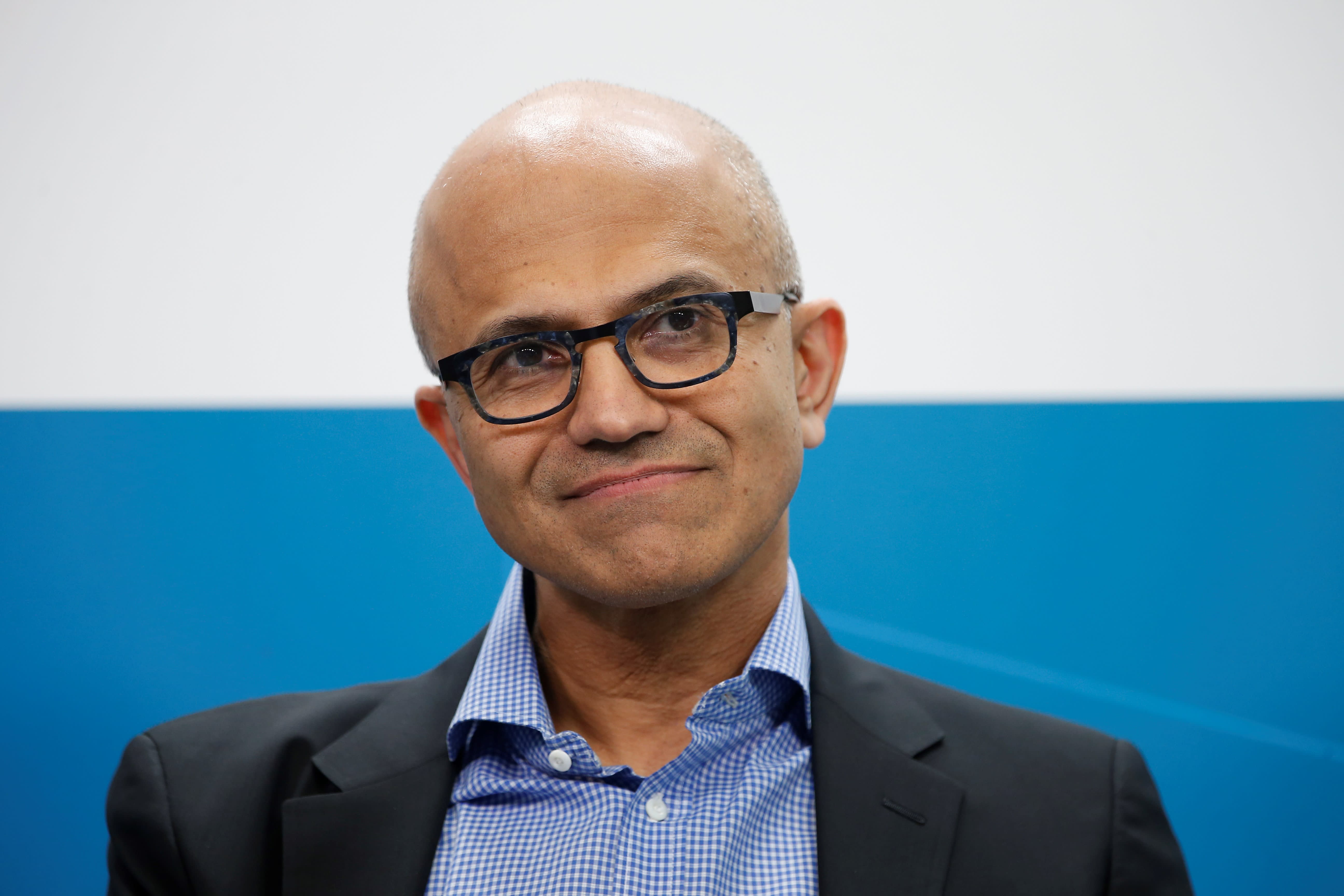
Microsoft CEO Satya Nadella and Volkswagen CEO Herbert Diess (not pictured) attend a session during their visit to Volkswagen Digital Lab in Berlin on Feb. 27, 2019.
Abdulhamid Hosbas | Anadolu Agency | Getty Images
Microsoft on Friday said its political action committee won’t contribute to upcoming campaigns for members of U.S. Congress who voted against confirming the Electoral College results of the 2020 presidential election. It will also change the name of its committee for backing political campaigns after employees spoke out against some contributions.
The adjustments demonstrate how large technology companies are sometimes willing to change their practices following criticism from their own workers.
The Microsoft Political Action Committee, known as MSPAC, will become the Microsoft Corporation Stakeholders Voluntary PAC, or MSVPAC. Fred Humphries, corporate vice president of U.S. government affairs, explained the change an email posted to a Microsoft blog.
The changes come after Microsoft employee Carmen Crincoli published a plea for the company to stop giving money to politicians who voted against the Electoral College results. Those votes came after thousands of angry citizens stormed the U.S. Capitol after then-President Donald Trump gave a speech in which he blamed his election loss on widespread fraud. Attorney General William Barr said in December that the Justice Department had not seen enough fraud that it could have caused a different outcome in the presidential election.
Microsoft held sessions with employees to hear their opinions about MSPAC following reports that the committee had sent financial support to campaigns for members of Congress who had committed to opposing the Electoral College results.
The decision to halt disbursements to those people in the 2022 cycle is not a complete surprise. On Jan. 23 Microsoft said it had halted all donations while it reviewed whether to suspend them to candidates who voted against certifying the results.
Humphries also said Microsoft will introduce a program for backing efforts to boost transparency in politics.
“We’ve heard from some members of the PAC community who do not want to contribute to political candidates but instead would like to donate to work that will address the issues and policies that are important to the preservation and promotion of democracy,” he wrote. “To address this, we will create a new Democracy Forward Initiative to support organizations that promote public transparency, campaign finance reform, and voting rights. We will have more details to share in coming weeks on the creation of this fund and how employees can contribute to it.”
On rare occasions, major technology companies have changed their behavior in response to pressure from employees.
In 2018 Google said it wouldn’t renew a cloud contract with the U.S. Defense Department after thousands of employees signed a petition for the company to end its involvement.
But it doesn’t always happen.
In 2018, voicing concerns that U.S. Customs and Border Patrol authorities separated children from parents, Salesforce employees signed a petition to end a contract with the agency. But, CEO Marc Benioff ultimately argued that the contract didn’t involve family separation.
And in 2020 employees at Microsoft’s GitHub unit signed a petition for GitHub to end its contract with U.S. Immigration and Customs Enforcement, but GitHub hasn’t announced a change to its relationship with the government agency.
Nominations are open for the 2021 CNBC Disruptor 50, a list of private start-ups using breakthrough technology to become the next generation of great public companies. Submit by Friday, Feb. 12, at 3 p.m. ET.
WATCH: Jefferies: We like Microsoft stock, the key question is ‘how much better can it get?’




















